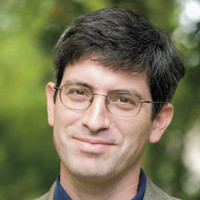Clare Malone is a staff writer for The New Yorker, where she covers the media. Her latest article is ”Hasan Minhaj’s ‘Emotional Truths.’”
“You're going to work a lot of hours if you want to be successful, and you're probably not going to make as much money as your dumb friend from college does. You're choosing it for a different reason, but I do think we have to make efforts to have the [journalism] industry be a middle-class profession.”





